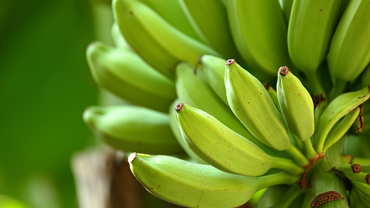
Insulin resistance is preventable and reversible through lifestyle changes, proper nutrition, supplements, exercise and stress management. Weight loss and exercise are the best treatments for restoring the body's ability to respond to insulin.
Metabolic syndrome and insulin resistance are a significant health care problem in the United States. Type 2 diabetes affects more than 300 million people.
In a study published in Atherosclerosis, researchers assessed the effects of resistant starch on weight loss as well as lipid and glucose metabolism in patients with pre-diabetes and diabetes.
Previous research has shown a variety of health benefits from resistant starch including increased insulin sensitivity, preventing obesity, lowering cholesterol, preventing constipation, and producing short chain fatty acids in the gut.
In this study, 113 patients with an average age of 65 were randomized to receive 4.5 grams of resistant starch from green banana flour or diet alone for six months. Body composition, laboratory assessments, and dietary intake were taken at baseline and at the end of the study.
Both groups showed decreases in waist and hip circumference, but an increase in lean body mass and decrease in fat mass were seen only in the resistant starch group. The resistant starch group also experienced decreases in diastolic blood pressure, body mass index (BMI), and body weight. Additionally, subjects in the resistant starch group showed reductions in fasting glucose and hemoglobin A1c, with a greater reduction of fasting glucose in subjects with pre-diabetes. (Subjects in the diet group without resistant starch experienced a decrease in A1c as well, but it was less significant, and they also had decreased HDL-C.)
Resistant starch includes all starch and starch degradation products that bypass digestion in the small intestine because they are physically inaccessible in the food matrix (RS1), within starch granules (RS2) or because they are present as retrograded starch (RS3), which is produced during food manufacturing and preparation. Starch can also be chemically modified (RS4) to make it resistant to enzymatic digestion.
Green banana is considered RS2, as it is indigestible due to the high amylose content in its raw form. This plays an important role as a prebiotic and is responsible for some of its physiological properties.
Prebiotics impair the uptake of dietary cholesterol and reduce bile acid reabsorption. They also increase bacterial fermentation in the colon, which affects gut barrier function and cholesterol metabolism, regulates GLP-1 and reduces translocation of lipopolysaccharides.
Resistant starch should be considered for patients with obesity, insulin resistance, dyslipidemia, and metabolic syndrome. It can also be a great substitute to regular starch in baked goods, which lowers the caloric density and glycemic index of food products.
By Michael Jurgelewicz, DC, DACBN, DCBCN, CNS